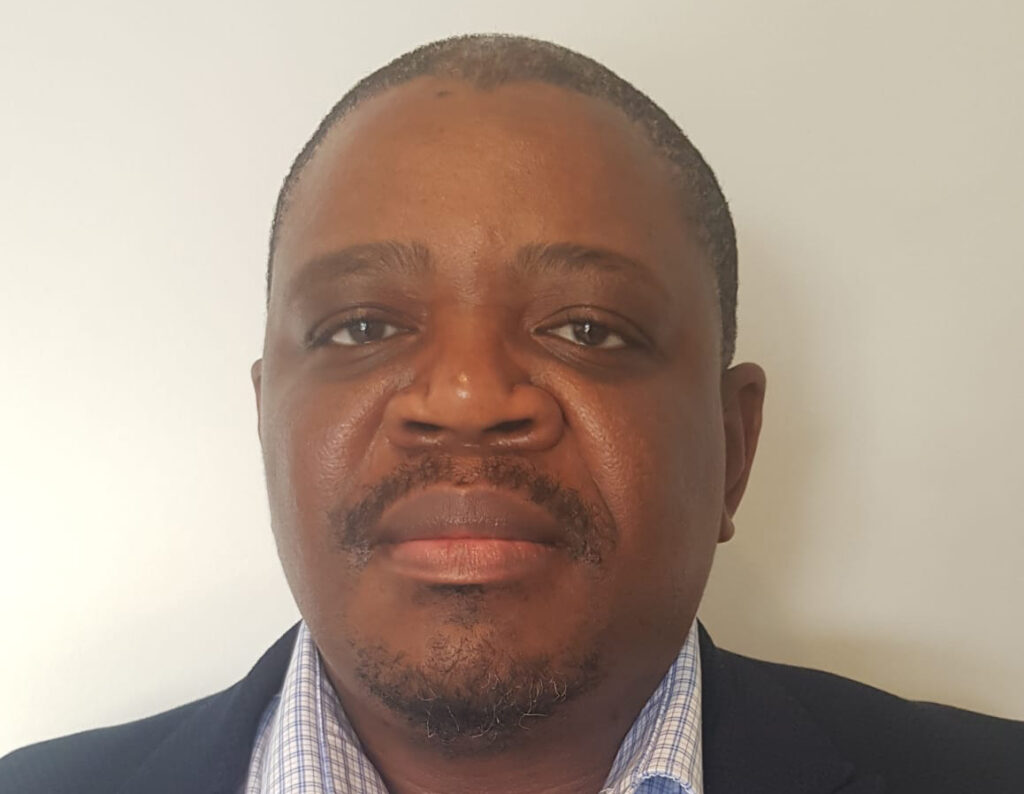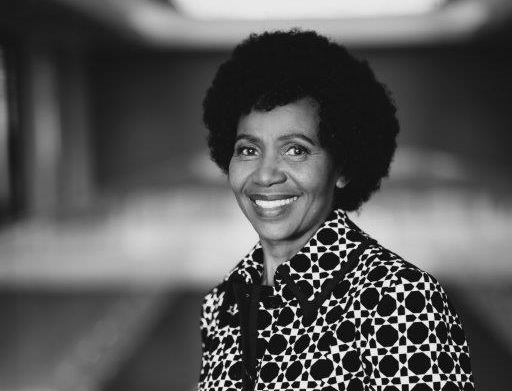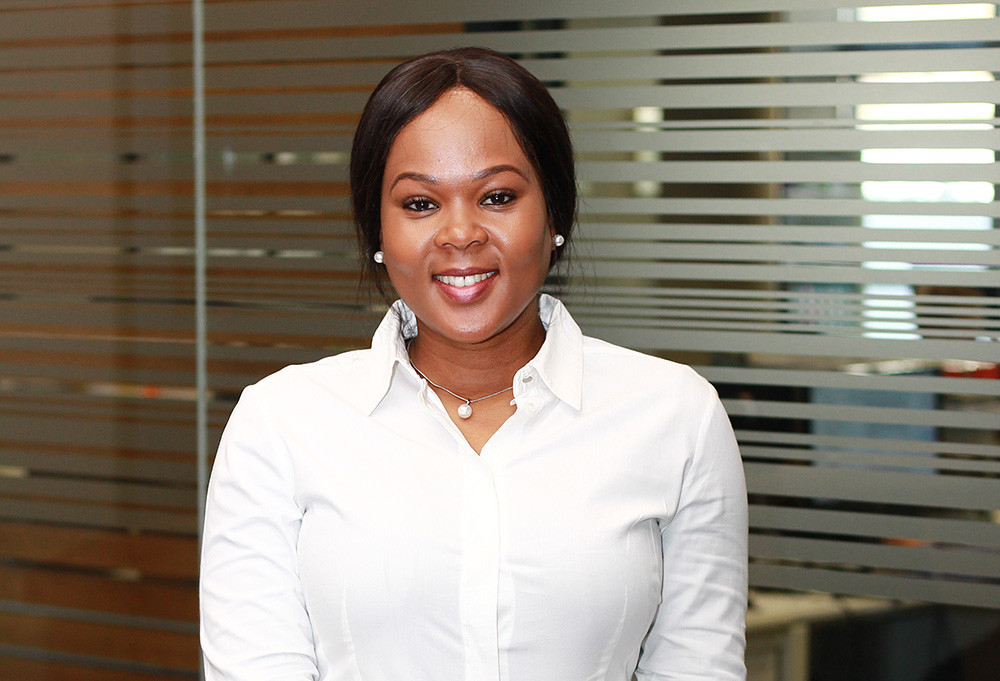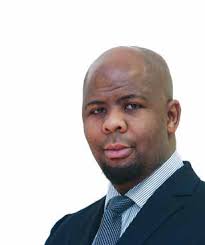Kelikile Kwinana is national president of South African Women in Construction
This webinar was sponsored the Mail & Guardian and CETA (Construction Education and Training Authority) in conjunction with Bayede News. It featured Sabelo Wasa, Administrator of the Construction Sector Education and Training Authority; Nqaba Nqandela, Office of the Department of Higher Education and Training; Kelikile Kwinana, National President of South African Women in Construction (SAWIC); and Priscilla Mdlalose, CEO of the Council of the Built Environment (CBE). It was facilitated by Vuyolwethu Badi, a Director, Shareholder and Board member at RLB Pentad.
How can women’s participation in the male-dominated construction industry be increased? They comprise only 11% of the total workforce in construction, and of these women, most only have grade eight qualifications. This was the issue discussed in this CETA webinar.
 Sabelo Wasa, Administrator of the Construction Sector Education and Training Authority
Sabelo Wasa, Administrator of the Construction Sector Education and Training AuthorityNqaba Nqandla said that Women’s Month should always be an opportunity to bring up the issue of their participation in sectors such as construction. He said that the gender gap cannot be changed overnight, but there are vast opportunities available for women in the sector if their skills are developed. Many lack education and, even if they have obtained qualifications, they are often not formally recognised. To address this situation, CETA has partnered with South African Women in Construction (SAWIC) to develop formal training programmes.
Sabelo Wasa pointed out that transformation is a national imperative, so everyone must get involved to drive it; it is not a choice. Like mining, this sector is very hard to transform: the excuse of “physicality” has been employed to keep the sector male-dominated. There are different views on how to transform the sector, but unquestionably, skills development is vital for lifting women out of poverty — and men cannot be excluded from this process. CETA has launched a programme to this end, and has policies that are favourable towards women, for instance, all apprenticeship programmes must have 50% women participation.
However, assessment is not easy to carry out; it is difficult to determine which companies are women-owned and run, for instance, so there is definitely room for improvement, according to Wasa. The focus will be on certification and producing professionals who can transform the sector. The partnership with SAWIC must an equal one, and a scorecard has been launched so that CETA’s progress can be strictly measured. Research in the informal sector revealed that most people there have between one and six years of experience in trades such as painting. As part of the partnership with SAWIC a database will be made of every person sitting outside each hardware store and then educate them, and help them create co-operatives that will help to kickstart the post-Covid-19 development drive.
 Priscilla Mdlalose is CEO of the Council of the Built Environment
Priscilla Mdlalose is CEO of the Council of the Built Environment Priscilla Mdlalose said it is critical for women to be made the centre of attention in the construction industry so that they can be upskilled. She outlined the regulatory structure of the built environment, which are there to register the professionals in the sector, who can be called upon for any required project, and the legislative mandate of the various councils.
She said it is imperative for women to become registered and undergo training to increase their presence in the sector. Partnerships are vital to attract and retain women in construction, such as with the education department, so that young girls find this sector appealing, and are supported with bursaries if they are already studying. Once graduated they must become employed and trained so they can become registered.
Training must be relevant so that the correct skills are obtained; and there must be a special focus on rural areas. The CBE’s key role is to monitor progress on women’s economic empowerment, and recognise challenges such as high drop-out rates among young women due to pregnancy. The CBE is developing ways to work with CETA to monitor the skills development programmes and whether women’s lives are actually being changed. Women in rural areas must be linked with professionals so they can develop, and must be supported financially. Education and training are critical for women’s empowerment.
 Vuyolwethu Badi is a Director, Shareholder and Board member at RLB Pentad, a global cost consultancy firm
Vuyolwethu Badi is a Director, Shareholder and Board member at RLB Pentad, a global cost consultancy firmBadi said there is a gap regarding B-BBEE as it only recognises race, not gender figures within companies. She asked how do we actually make women the centre of development in the construction sector? Can women be factored into the B-BBEE scorecard? Nqandla said that there is always room for improvement, and change will happen if enough people agitate for it.
Why are women not growing in the construction sector, asked Kelikile Kwinana. Organisations such as SAWIC have to partner with CETA to address this issue. An enabling environment must be created for women, but finances and membership fees are an ongoing issue. Training must be customised for the situations and needs; but how do you train women who are running companies, as training removes them from earning and being with their families? Institutions that partner with SAWIC have to be capacitated. Women must be trained in business management; those who are trained must go on receive practical training; some are undergoing training just to receive a stipend.
Digital training sessions are something that have emerged from the Covid-19 crisis; they can be recorded and used again. Gender-based violence is so prevalent because too many women are financially dependent on men, said Kwinana.
Monitoring and evaluation is going to be very important, said Wasa, to measure the impact of our training. We are pushed to produce certain numbers, but we need to actually discern if employers are happy with the people we have trained. Women already in the sector must speak to those entering it to find out what the problems are. Digital training is helpful, but there is a lot of practical training involved in, for instance, learning bricklaying.
Questions from the audience were then fielded by the speakers:
 Nqaba Nqandela, Office of the Department of Higher Education and Training
Nqaba Nqandela, Office of the Department of Higher Education and Training- Wasa said that there is no “target” for accreditation, but the more established training providers are being pressured to work with and develop smaller companies.
- Kwinana said it is difficult to find work for trained women, and people need to go onsite for practical training: if they cannot, then the skills they have learned vanish.
- Mdlalose said partnerships between all players are vital to promote the participation of women in the construction sector.
- Nqandla said there are talks in progress to engage those in training in the big infrastructure projects about to take place in the country, so that skills development takes place there. He said that there are more women in the early training phases than in the higher stages, and that this must be investigated.
Wasa thanked all the panellists for their participation and hoped that the dialogue would be carried forward. Kwinana said she would like to see more skills put into the hands of women, so they can have more cash; and that there must be more collaboration, and not just in Women’s Month. Badi said in closing that “the baton must be carried forward”.